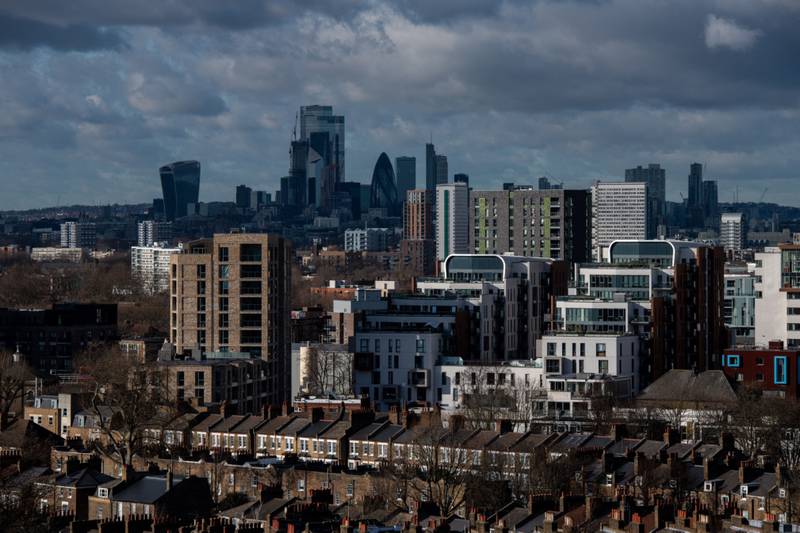UK house prices rise at slowest rate since June

British house prices rose in January at their slowest pace since the summer of last year, gaining only 0.3 per cent on December in the first indication that soaring inflation and higher interest rates are rattling the booming property market.
The annual rate of growth remained steady at 9.7 per cent, with the average home hitting a record high of £276,759 at the start of 2022, the latest Halifax House Price Index showed.
“House price growth slowed somewhat at the start of the year, rising by just 0.3 per cent in January, the smallest monthly increase since June 2021,” said Russel Galley, managing director of UK building society Halifax. “This followed four consecutive months of gains above 1 per cent. Overall prices remain around £24,500 up on this time last year, and £37,500 higher than two years ago.”
Britain's property market enjoyed a robust year in 2021, boosted by the stamp duty holiday, a desire for more space as city dwellers looked for bigger homes during the work-from-home trend and limited supply. The slowing growth in January reflects the wider challenges facing the economy such as the cost-of-living crisis that is set to grip UK households from April caused by soaring energy bills and higher taxation.
Last week, the Bank of England raised interest rates for the second time in two months – albeit to a level still below that at the start of the pandemic – as it sought to head off inflation running at a 30-year high of 5.4 per cent in December, with expectations it will hit 7.25 per cent in April.
Affordability was still at historically low levels as house price rises outstripped earnings growth and younger buyers faced challenging deposit requirements, Mr Galley said.
"Despite record levels of first-time buyers stepping on to the ladder last year, younger generations still face significant barriers to home ownership as deposit requirements remain challenging,” he said.
"This situation is expected to become more acute in the short-term as household budgets face even greater pressure from an increase in the cost of living and rises in interest rates begin to feed through to mortgage rates.”
Anthony Codling, chief executive of property platform twindig, said deposits will be key to the level of house price inflation this year. “Those with a big deposit will be able to rise above the living and mortgage cost rises, those without will not and unfortunately, the deposit-poor will also find it harder to save as living costs rise,” he said.
Wales started 2022 as the strongest performing part of the UK for annual house price growth, at 13.9 per cent, while Northern Ireland continued to record strong price growth, with prices up by 10.2 per cent compared to a year earlier.
Growth remained strong in Scotland with an 8.9 per cent annual increase, Halifax said. London remained the weakest performing area of the UK but the capital continued its recent upward trend with annual house price inflation rising for the third straight month to stand at 4.5 per cent.
Martin Beck, chief economic adviser to the EY Item Club, said January's slowdown may be a sign of things to come. "This year won't see a boost to prices from the stamp duty holiday which ran through much of 2021," he said. "To the extent the tax holiday brought forward purchases, its after-effects may drag on housing market activity in the near term."
Mr Beck said he expected the Bank of England to increase interest rates twice more this year, which in turn will push up mortgage rates to add more strain to household finances.
“The rising cost of living faced by households from higher inflation and tax rises means it's likely that fewer people will be able to afford to borrow the necessary amount they need to buy at higher mortgage rates,” he said.
